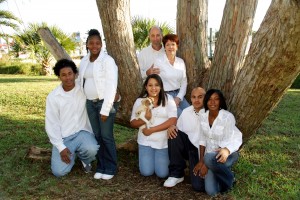Meaningful Coincidences Can Change Your Life
By Bernard D. Beitman, M.D.
Two events in your life surprisingly intersect. One may be a thought or a feeling and the other happens in your environment. The two events have no apparent causal connection. The surprise captures your attention and your mind searches for meaning. You wonder: “What does this mean for me?” “How can I explain it?”
Coincidences appear in all parts of our daily lives—money, work, family life, romance, health, ideas, and spirituality as I show in my book Connecting with Coincidence. They also appear in movies, books, and the news. Like sex, they help make the world go round.
According to the Weird Coincidence Survey the most frequent coincidence is:
“I think of an idea and hear or see it on the radio, TV or internet.”
The next most frequent are:
“I think of calling someone, only to have that person unexpectedly call me.”
“I think of a question only to have it answered by external media (i.e. radio, TV, people) before I can ask it.”
“I advance in my work/career/education through being in the right place at the right time.”
Carl Jung introduced meaningful coincidences to the Western world with the term synchronicity. The purpose of synchronicity, according to many Jungians, is to help with psychological growth and change—to individuate, to become truly who you are. One of my research participants reported this example of counseling by coincidence.
“My patient Bart was heading for divorce. He and his wife kept arguing. She talked too much. She was too ready to offer advice and not hear the advice he offered. Their last child was about to leave home. Couples therapy did little good. As the idea of divorce percolated in his mind, Bart went to the local mall and saw five friends and acquaintances, each of whom just happened to be in the midst of divorce. Several weeks later he independently heard from three old friends, each of whom were divorced. This series of other people divorcing made him realize: I don’t want to be one of them.
Was it just because he was thinking about divorce that he noticed all the divorcing men? Skeptics easily and correctly suggest that if you are looking for yellow Honda Accords, you will see them. If it is on your mind, you will notice. Yet, five divorcing men appearing in one outing? Three divorced old friends calling within a short period of time? The message pounded home. Without looking, he wouldn’t have seen them. I think he had positioned himself to find this series of divorces. They were out there and he found a way to experience them live, in 3-D reality. Like Janine, he found in his environment a reflection of his conflict. I call it counseling by coincidence.
Encountering the series of divorced men led Bart to recommit to maintaining his own marriage. When he and his wife left town, they were better partners than ever before, though they still had much work to do with each other.” (from Connecting with Coincidence)
Synchronicity can come to your attention in many different ways. You may find yourself urged to self-reflect by a sign, a TV moment, or a song. You may stumble upon something online at exactly the right moment. A stranger may say a few words you needed to hear. Useful reminders to wonder may show up almost anywhere if you are willing to notice.
Some meaningful coincidences show us how deeply we are connected to those we love. Many people report having felt the pain of a loved who was at a distance from them. Psychiatrist Ian Stevenson collected many such stories and our research participants confirmed this experience. I call it simulpathity and here is what happened to me:
“I had experienced coincidences many times before, but none was more startling than what happened at 11:00 PM on February 26, 1973, when I was thirty-one years old. Suddenly, I found myself bent over the kitchen sink in an old Victorian house on Hayes Street in the Fillmore
District of San Francisco. I was choking on something caught in my throat. I couldn’t cough it up. I hadn’t eaten anything. I didn’t know what was in my throat. I’d never choked for this long before. Finally, after fifteen minutes or so, I could swallow and breathe normally.
The next day, my birthday, my brother called to tell me that our father had died in Wilmington, Delaware, at 2:00 AM Eastern Standard Time. He was three thousand miles and three time zones away; 2:00 AM in Wilmington was 11:00 PM in California. My father had bled into his throat and choked on his own blood at about the same time I was uncontrollably choking. He died on February 27, my birthday.” (from Connecting with Coincidence)
Meaningful coincidences can also help get us to places we need to be without knowing how we got there.
One of my study participants described how her brother once saved her life: “There was a very dark period in my late teens, a confused time, to say the least. I cannot explain the rationalization, or rather, I should state, there was none. I couldn’t seem to withstand all of the suffering in the world . . . and one afternoon, I took my dad’s gun, got in my car, and drove to an isolated place on the lake. The intention was to end my own life. I sat there, with gun in hand, without truly understanding why. . . . It was as if I didn’t have any clue how I managed to arrive at this moment in time. But, as tears slowly came down my cheeks, I heard the sound of another car pulling up beside me . . . and my brother stepped out of the car, asking me to hand him the gun. I was breathless; I was totally shocked. All I could do is to ask him how on Earth he knew I was feeling this way; how did he know I even had this gun, and most important, how did he find me? He said he had no answers. He didn’t have any idea why he got into his car; he didn’t know where he was driving, nor why he was going there; or what he was supposed to do when he arrived.” (from Connecting with Coincidence)
How did her brother know that she needed him? What made him make these complex decisions without a conscious intention? He seemed drawn to his sister by her distress, without consciously knowing that she was about to kill herself. Simulpathity coupled with an uncanny knowledge of where to go helped to save her from taking the next step.
I believe each of us possesses a human GPS which gives us the ability to get where we need to be without knowing how we did it.
Meaningful coincidences can expand our understanding of how the world works and uncover some of our untapped abilities.
Bernard D. Beitman, M.D. is a visiting professor at the University of Virginia in the department of Psychiatry and Neurobehavioral Sciences and is the former Chair of the department of Psychiatry at the University of Missouri-Columbia. He graduated from Yale Medical School and completed a psychiatric residency at Stanford. He has edited two issues of Psychiatric Annals that focus on coincidences and is the founder of the developing interdisciplinary field of Coincidence Studies.

















